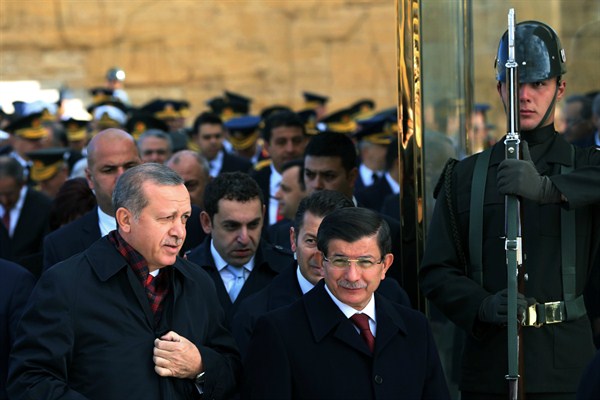Turks will head to the polls again this Sunday, Nov. 1, to vote for a new parliament, after negotiations to form a coalition government failed following an inconclusive election in June. The vote comes amid considerable unrest in Turkey: In July, a two-year cease-fire agreement between the government and the insurgent Kurdistan Workers’ Party (PKK) collapsed, while a cell of the self-proclaimed Islamic State in southeastern Turkey has attacked several targets near the Syrian border and, recently, deeper in Turkey, including two suicide bombings that killed more than 100 people in Ankara earlier this month.
Despite this unrest, opinions polls suggest that there are very few undecided voters left in Turkey. The Justice and Development Party (AKP) remains Turkey’s most popular political party and will easily win the most seats Sunday. The main opposition, the Republican People’s Party (CHP), will once again dominate Turkey’s west coast, and the Democratic Peoples’ Party (HDP) is certain to retain its commanding position in Turkey’s Kurdish-majority southeast.
If the current polls are accurate, the AKP is on pace to win 260 seats, leaving it 16 short of the 276 needed to form a government without a coalition partner. The CHP is certain to win at least 128 seats and could exceed that total if its slight uptick in recent polls results in more votes. The far-right Nationalist Movement Party, known as the MHP, and the HDP will compete to be Turkey’s third-largest political party.

